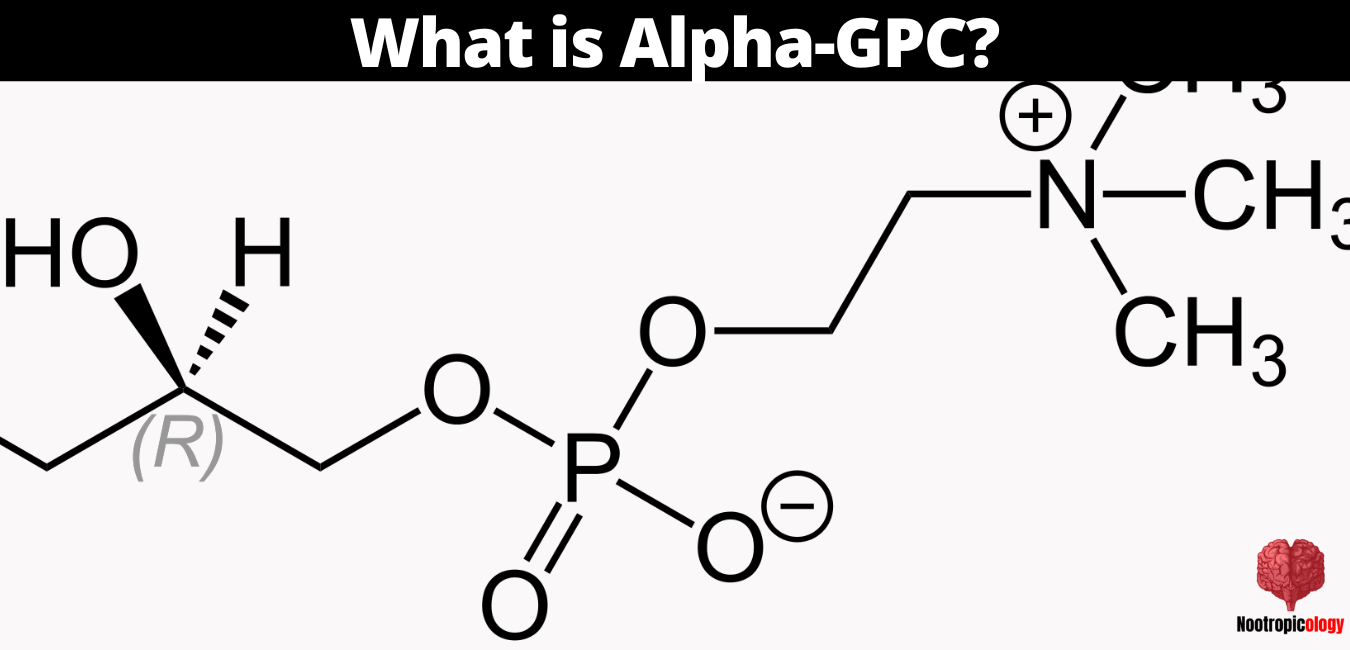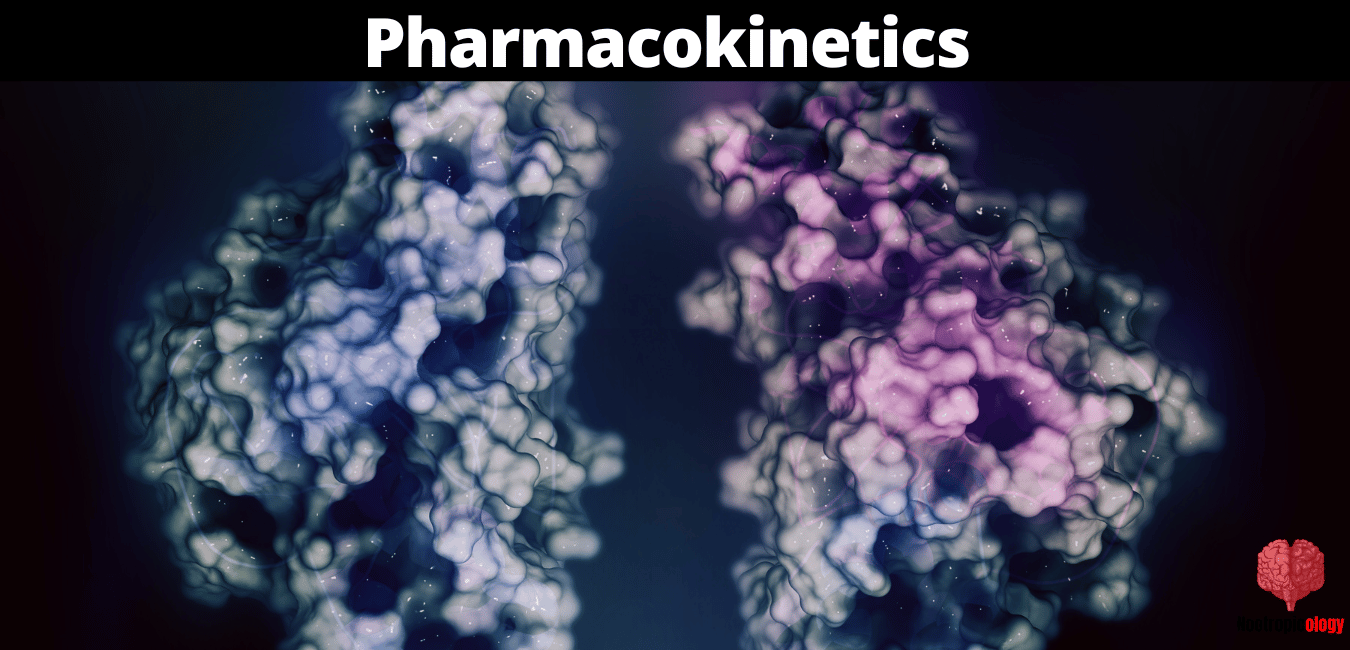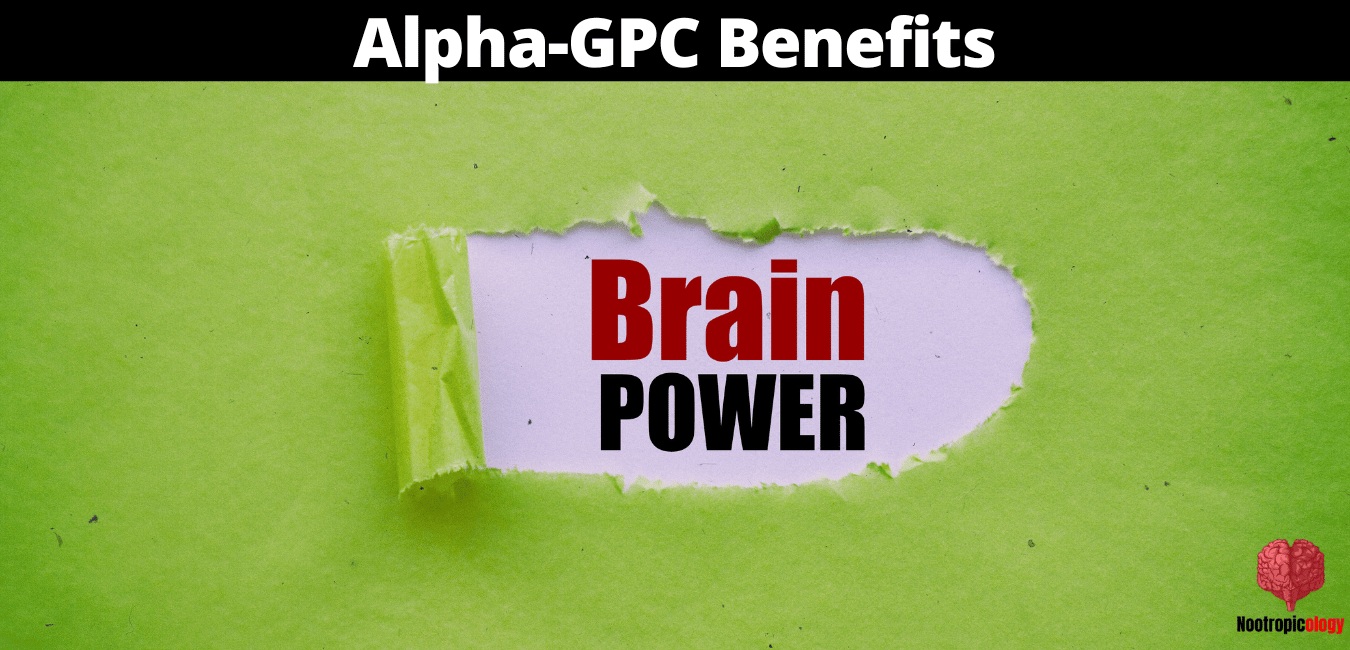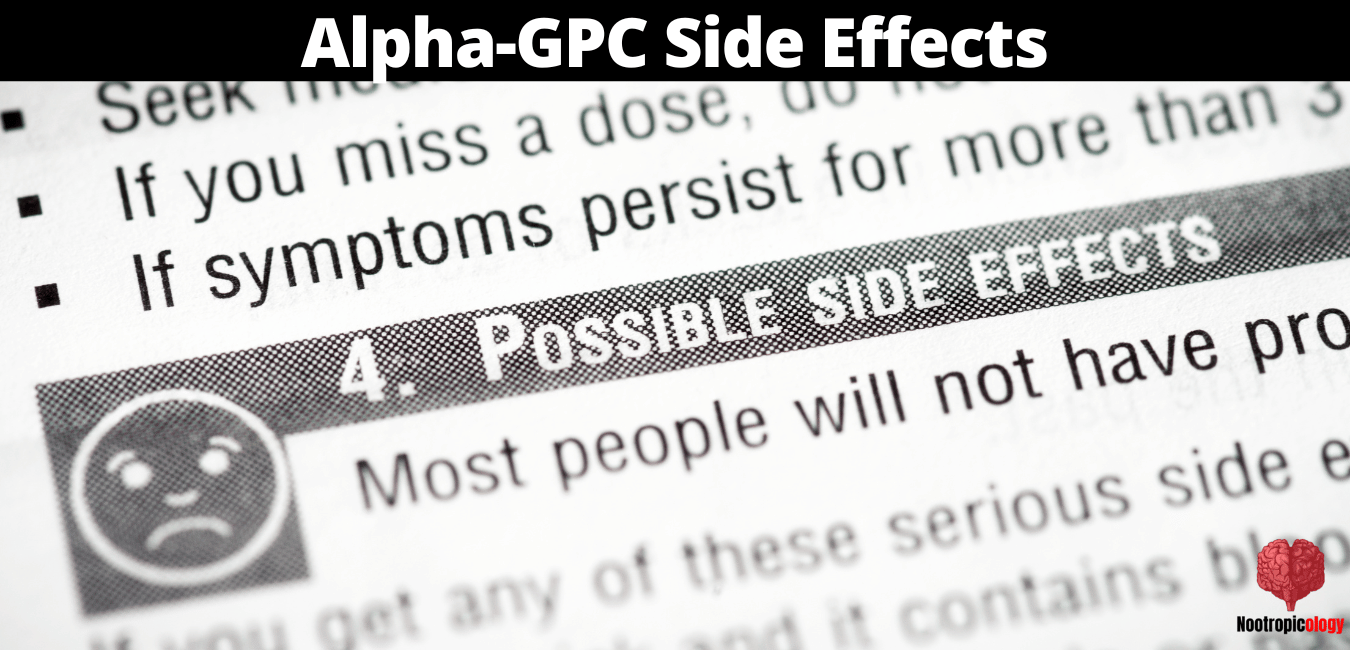Alpha-GPC Review: Nootropic Benefits, Side Effects & Dosages
As a devoted health enthusiast and passionate explorer of the human mind's capabilities, I've always been curious about nootropics.
These "smart drugs" promise cognitive benefits like improved memory, creativity, and mental alertness, and I've often found myself captivated by their potential.
Today, I want to focus on one specific nootropic that has caught my attention: Alpha-GPC or, to use its full name, L-Alpha glycerylphosphorylcholine.
Let's dive in!
Overview of Alpha-GPC (L-Alpha glycerylphosphorylcholine)


Alpha-GPC, L-Alpha glycerylphosphorylcholine, is a natural choline compound found in the brain that plays a pivotal role in our cognitive function. It acts as a precursor to acetylcholine (ACh), a key neurotransmitter that facilitates communication between nerve cells in the brain.[1]
Acetylcholine profoundly influences various cognitive processes, including memory consolidation, learning acquisition, and attention span. Alpha-GPC is an endogenous substance, meaning it is inherently present within our physiological system, particularly in cerebral structures.
Moreover, it can be obtained exogenously through dietary sources such as dairy products, eggs, and certain types of meat, especially those derived from organs. However, the concentrations in these foods are relatively low, prompting many to turn to laboratory-synthesized supplements to achieve a more substantial intake.
In recent years, Alpha-GPC has emerged as a focal point in the realm of cognitive enhancement, often referred to as nootropic substances. Its ability to potentially augment mental prowess has captured the attention of researchers, medical professionals, and individuals striving for cognitive optimization.
Alpha-GPC works predominantly by elevating the levels of acetylcholine within the brain. As a cholinergic agent, it contributes to synthesizing and releasing this neurotransmitter, enhancing various cognitive function aspects.
Alpha-GPC's Biochemical Structure, Properties, and Mechanisms of Action
Alpha-Glycerylphosphorylcholine (Alpha-GPC) exhibits a unique chemical structure, facilitating its roles in cognitive function, cellular homeostasis, and neurotransmission. Structurally, it comprises a glycerol phosphate group attached to a choline particle.
As a phosphatidylcholine precursor, it plays a significant role in the biosynthesis and maintenance of cellular membranes. Alpha-GPC functions as a cholinergic compound, meaning it can donate choline, a vital nutrient in the body.
Choline is essential for synthesizing phosphatidylcholine, a key component of cell membranes, and acetylcholine, a significant neurotransmitter involved in various cognitive functions, including memory, learning, and attention.
The role of Alpha-GPC in acetylcholine synthesis is particularly significant. Acetylcholine (ACh) plays an essential role in transmitting signals in the nervous system, particularly in the parasympathetic nervous system.
The process of acetylcholine synthesis occurs in the presynaptic neuron. Here, choline, provided by Alpha-GPC, is taken up into the neuron by a sodium-dependent choline transporter. Inside the neuron, choline combines with acetyl-CoA through the action of the enzyme choline acetyltransferase (ChAT) to form acetylcholine.
This newly synthesized acetylcholine is then packaged into synaptic vesicles, ready for release into the synaptic cleft upon stimulation.
Alpha-GPC's Interaction with Neuronal Cell Membranes and Neurotransmitter Systems
Alpha-GPC has a unique interaction with neuronal cell membranes and neurotransmitter systems. It is a precursor to phosphatidylcholine, a phospholipid that is a major component of neuronal cell membranes. It aids in maintaining the fluidity and integrity of these membranes, thus ensuring optimal neuronal communication and function.
Moreover, Alpha-GPC plays a vital role in modulating neurotransmitter systems by contributing to acetylcholine synthesis. Acetylcholine is involved in various neural pathways, contributing to functions such as muscle contraction (in the peripheral nervous system) and cognitive processes like memory and learning (in the central nervous system).
Alpha-GPC's mechanism of action in the brain primarily involves contributing to acetylcholine and phosphatidylcholine synthesis, but it may also have neuroprotective properties and interact with other neurotransmitter systems. This multifaceted role makes it an intriguing compound for neurological and cognitive health.
Pharmacokinetics of Alpha-GPC


Now that we know a bit about how Alpha-GPC works in the brain let's consider some of its pharmacokinetic properties below.
Absorption and Bioavailability
Alpha-GPC (Alpha-Glycerylphosphorylcholine) exhibits excellent bioavailability when administered orally. It is rapidly absorbed through the intestines, and its glycerophosphate component allows it to be highly water-soluble, facilitating its absorption.
Due to its lipophilic properties, it can cross the lipid-rich environment of the cell membrane, improving uptake efficiency. Following absorption, it enters the bloodstream and is distributed throughout the body.
Distribution
One of the key features of Alpha-GPC is its ability to cross the blood-brain barrier (BBB), a highly selective semipermeable membrane barrier that separates the circulating blood from the brain and extracellular fluid in the central nervous system.
This penetration allows it to exert its effects directly on the brain. Alpha-GPC distributes effectively within the body and has been found in various tissues, including the brain, kidneys, and skeletal muscles.
Metabolism and Excretion
Once absorbed and distributed, Alpha-GPC undergoes metabolism mainly in the liver, the body's primary organ for drug metabolism. The exact metabolic pathway of Alpha-GPC is not entirely clear, but it's known that it serves as a choline donor.
The choline molecule can be used in the synthesis of acetylcholine or incorporated into phosphatidylcholine, a major component of cell membranes. It can also be oxidized into betaine in the mitochondria.
Excretion of Alpha-GPC occurs through the kidneys in the form of its metabolites. These metabolites are eliminated in the urine.
Alpha-GPC's Half-life
The half-life of a substance is the time taken for the body to eliminate half of the initial dose. The half-life of Alpha-GPC is relatively short, roughly 4-6 hours, depending on individual metabolism and other factors.
This means that within 4-6 hours post-ingestion, approximately half of the administered Alpha-GPC will have been eliminated from the body.
This relatively short half-life has implications for dosage. Alpha-GPC often needs to be administered in divided doses throughout the day to maintain stable blood levels and achieve the desired cognitive benefits (but more on this later).
Nootropic Benefits of Alpha-GPC


Let's move on and examine the purported cognitive benefits of Alpha-GPC.
Review of Clinical Studies Examining Alpha-GPC's Impact on Cognitive Function
One study found that treatment with the cholinergic precursor choline alfoscerate (Alpha-GPC) resulted in cognitive improvement in patients with mild to moderate Alzheimer's disease (AD). The study was a multicenter, double-blind, randomized, placebo-controlled trial involving 261 patients. The patients were treated with Alpha-GPC or placebo capsules for 180 days.[2]
The efficacy of the treatment was assessed using various outcome measures, including the Alzheimer's Disease Assessment Scale-Cognitive Subscale (ADAS-Cog), the Mini-Mental State Examination (MMSE), the Global Deterioration Scale (GDS), the Alzheimer's Disease Assessment Scale-Behavioral Subscale (ADAS-Behav), the Alzheimer's Disease Assessment Scale (ADAS-Total), the Clinical Global Impression (CGI) scale, and the Global Improvement Scale (GIS) score.
The study found that patients treated with Alpha-GPC significantly improved cognitive function compared to those receiving the placebo. The Alpha-GPC group had a decrease in ADAS-Cog scores after 90 and 180 days of treatment, while the placebo group showed an increase in ADAS-Cog scores.
Other assessed parameters, including MMSE, GDS, ADAS-Behav, ADAS-Total, and CGI scores, consistently improved in the Alpha-GPC group but remained unchanged or worsened in the placebo group. Statistically significant differences were observed between the treatment groups in ADAS-Cog, MMSE, GDS, ADAS-Total, and CGI scores after 90 and 180 days and in ADAS-Behav and GIS scores after 180 days of treatment.
Alpha-GPC Boosts Motivation in Healthy Volunteers: Study
Another study found that alpha-glycerylphosphorylcholine (αGPC) has the potential to increase motivation in healthy individuals.[1] The study used a single-blind, randomized, placebo-controlled design with 39 participants. The participants self-administered either αGPC or placebo capsules for two weeks while recording their subjective feelings using the KOKORO scale, which quantifies emotional states.
The results showed that the αGPC group had a tendency to experience increased motivation during the intervention period compared to the placebo group. Specifically, motivation levels at night were significantly higher in the αGPC group. However, αGPC did not have any significant effects on anxiety.
α-GPC Protects Against Seizure-Induced Cognitive Impairment and Boosts Neurogenesis
According to a study conducted by Song Hee Lee et al., late treatment with choline alfoscerate (α-GPC) was found to increase hippocampal neurogenesis and provide protection against seizure-induced neuronal death and cognitive impairment.[3]
The study utilized an animal model of pilocarpine-induced seizures to assess the therapeutic effects of α-GPC. Immediate one-week treatment did not demonstrate neuroprotective effects or neurogenesis, while immediate three-week treatment showed neuroprotective effects but no impact on neurogenesis.
However, initiating α-GPC treatment three weeks after the seizure and continuing it for three weeks resulted in improved cognitive function by reducing neuronal death and blood-brain barrier disruption and promoting neurogenesis.
These findings suggest that administering α-GPC, even in the late stage following seizures, could be beneficial for enhancing cognitive function in epilepsy patients.
Alpha-GPC Enhances Mental Recovery in Stroke Patients: Multicenter Trial
According to a multicenter clinical trial conducted by G. Barbagallo Sangiorgi et al., alpha-glycerophosphocholine (alpha-GPC) was found to be clinically effective and well-tolerated in promoting mental recovery in patients with recent stroke or transient ischemic attacks.[4]
The trial involved 2044 patients who received alpha-GPC treatment after the attack. It was administered intramuscularly at a daily dose of 1000 mg for 28 days and orally at a dose of 400 mg three times daily for the following 5 months. The evaluation of the drug's efficacy on psychic recovery was assessed using various scales.
During the intramuscular phase, the Mathew Scale (MS) showed a statistically significant mean increase of 15.9 points (p < 0.001) from 58.7 to 74.6. During the oral administration phase, the Crichton Rating Scale (CRS) demonstrated a significant mean decrease of 4.3 points (p < 0.001) from 20.2 to 15.9, indicating improvement.
The Mini-Mental State Test (MMST) showed a significant mean increase (p < 0.001) from 21 to 24.3, reaching a "normality" score by the 3rd-month assessment. The Global Deterioration Scale (GDS) indicated that 71% of the patients had either "no cognitive decline" or "forgetfulness" at the end of the trial.
Adverse events were reported by 44 patients (2.14%), with therapy being discontinued in 14 cases (0.7%). The most common complaints included heartburn (0.7%), nausea-vomiting (0.5%), insomnia-excitation (0.4%), and headache (0.2%).
The trial reaffirms the therapeutic potential of alpha-GPC in facilitating cognitive recovery in patients with acute stroke or transient ischemic attacks. At the same time, the low incidence of adverse events highlights its excellent tolerability.
Potential Side Effects and Safety Profile of Alpha-GPC


In clinical studies, Alpha-GPC (Alpha-Glycerylphosphorylcholine) has been generally well-tolerated, with most side effects being mild and transient. The potential side effects include:
- Heartburn
- Nausea-vomiting
- Insomnia-excitation
- Headache
- The incidence of side effects is relatively low (around 2.14%)
- Only 0.7% of patients required discontinuation of therapy
The safety profile of Alpha-GPC has been evaluated in both short-term and long-term use. In clinical trials, short-term use of Alpha-GPC for up to 28 days showed good tolerability and a low incidence of adverse events. Long-term use, up to 5 months, demonstrated the drug's excellent tolerability and sustained therapeutic effects without significant safety concerns.
Special considerations should be taken into account regarding Alpha-GPC use in specific populations. For pregnant and lactating women, limited data are available on the safety of Alpha-GPC during these periods, and caution should be exercised.
Similarly, in elderly individuals, Alpha-GPC appears to be well-tolerated, but individual susceptibility and potential interactions with other medications should be considered.
People with certain medical conditions may need to exercise caution when using Alpha-GPC. For example, those with choline-sensitive conditions, such as Trimethylaminuria or Parkinson's disease, may need to avoid or limit their intake of choline-containing supplements like Alpha-GPC.
Likewise, individuals with epilepsy or other seizure disorders may need to use caution, as there is some evidence that choline can affect seizure threshold.
Optimal Dosages and Administration of Alpha-GPC
The dosage of Alpha-GPC (Alpha-Glycerylphosphorylcholine) used in clinical studies varies widely, depending on the objective of the study and the population being studied. However, common dosages range from 300 to 1200 mg per day.
For instance, studies investigating the cognitive enhancing effects of Alpha-GPC in individuals with mild to moderate Alzheimer's disease have commonly used dosages of 1200 mg per day, typically divided into three 400 mg doses.
The optimal dosage of Alpha-GPC can depend on several factors:
- Age: Older adults, particularly those with cognitive impairment, may require higher doses to see a beneficial effect.
- Health Status: Individuals with certain health conditions may need to adjust their dosage. For example, those with cognitive impairment or neurological conditions may benefit from higher doses, while those with choline-sensitive conditions may need to limit their intake.
- Individual Variability: There is considerable variability in how individuals respond to Alpha-GPC, influenced by factors such as genetics, diet, and overall health status. Some people may experience benefits at lower doses, while others may require higher doses.
As for the timing of administration, Alpha-GPC is typically taken in divided doses throughout the day to maintain stable blood levels, given its relatively short half-life. Regarding food intake, Alpha-GPC can be taken with or without food. However, some individuals may find that taking it with food reduces the likelihood of gastrointestinal side effects.
In terms of interactions with other substances, Alpha-GPC can enhance the effects of certain medications and substances. For example, it can potentiate the effects of acetylcholinesterase inhibitors (used in treating Alzheimer's disease) and can interact with anticholinergic drugs.
Frequently Asked Questions (FAQ)
Where Can I Buy Alpha-GPC?
Alpha-GPC is available over the counter at many health food stores and online vendors. It is important to purchase a high-quality product with third-party testing for safety and purity. I recommend purchasing Alpha-GPC online here.
Can I Stack Alpha-GPC with Other Nootropics?
Yes, Alpha-GPC is often used in combination with other nootropics in what is known as a 'stack.' The idea behind stacking is to enhance or complement the effects of individual substances. One popular stack is Alpha-GPC with racetams, a class of drugs known for their cognitive-enhancing effects. Racetams increase the release of acetylcholine in the brain, and Alpha-GPC, as a choline donor, can help ensure there's enough raw material for acetylcholine production.
Does Alpha-GPC Improve Memory?
Yes, research suggests that Alpha-GPC enhances memory. Both preclinical and clinical studies have shown improvements in memory performance with Alpha-GPC supplementation, likely due to its role in acetylcholine synthesis, a neurotransmitter critical for learning and memory.
Can Alpha-GPC Help with Focus and Attention?
Yes, some clinical studies have found that Alpha-GPC can enhance attention and focus. This is likely linked to its role in synthesizing acetylcholine, a neurotransmitter involved in attentional processes.
How Long Does It Take for Alpha-GPC to Work?
The onset of Alpha-GPC's effects can vary, but many individuals report noticing effects within a few hours of ingestion. Consistent use over several weeks may be required for more significant cognitive benefits.
How Does Alpha-GPC Make You Feel?
Alpha-GPC makes you feel mentally alert and focused without jittery or stimulating sensations. Some people experience increased motivation, as well.
Conclusion: My Final Thoughts on Alpha-GPC
Alpha-GPC (Alpha-Glycerylphosphorylcholine) has emerged as a promising nootropic due to its role in cholinergic transmission and its potential cognitive-enhancing effects. Clinical and preclinical studies have suggested that Alpha-GPC can enhance cognitive functions, particularly memory, and attention, and may also possess neuroprotective properties.
In terms of safety, Alpha-GPC is generally well-tolerated, with reported side effects being mostly mild and transient. However, individuals with specific health conditions, pregnant or lactating women, and elderly individuals should exercise caution and consult a healthcare provider before starting supplementation.
The optimal dosage of Alpha-GPC can vary based on individual factors such as age and health status, but clinical studies commonly use doses ranging from 300 to 1200 mg per day. It can be taken with or without food, and administration timing is typically divided throughout the day to maintain stable blood levels.
As I navigate the rapidly evolving fields of cognitive enhancement and neuroscience, I view Alpha-GPC as one of the many tools being explored to optimize cognitive function and brain health. Its unique role as a precursor to the essential neurotransmitter acetylcholine contributes to its potential as both a nootropic and a neuroprotective agent.
However, like any supplement, I believe it's crucial to approach the use of Alpha-GPC with a comprehensive understanding of its benefits and potential risks. I acknowledge the need for more extensive and long-term studies to fully grasp Alpha-GPC's effects and determine the best strategies for its use.
- Tamura, Yasuhisa et al. “Alpha-Glycerylphosphorylcholine Increases Motivation in Healthy Volunteers: A Single-Blind, Randomized, Placebo-Controlled Human Study.” Nutrients vol. 13,6 2091. 18 Jun. 2021, doi:10.3390/nu13062091 ↑ ↑
- De Jesus Moreno Moreno, Maria. “Cognitive improvement in mild to moderate Alzheimer's dementia after treatment with the acetylcholine precursor choline alfoscerate: a multicenter, double-blind, randomized, placebo-controlled trial.” Clinical therapeutics vol. 25,1 (2003): 178-93. doi:10.1016/s0149-2918(03)90023-3 ↑
- Lee, Song Hee et al. “Late treatment with choline alfoscerate (l-alpha glycerylphosphorylcholine, α-GPC) increases hippocampal neurogenesis and provides protection against seizure-induced neuronal death and cognitive impairment.” Brain research vol. 1654,Pt A (2017): 66-76. doi:10.1016/j.brainres.2016.10.011 ↑
- Barbagallo Sangiorgi, G et al. “alpha-Glycerophosphocholine in the mental recovery of cerebral ischemic attacks. An Italian multicenter clinical trial.” Annals of the New York Academy of Sciences vol. 717 (1994): 253-69. doi:10.1111/j.1749-6632.1994.tb12095.x ↑
